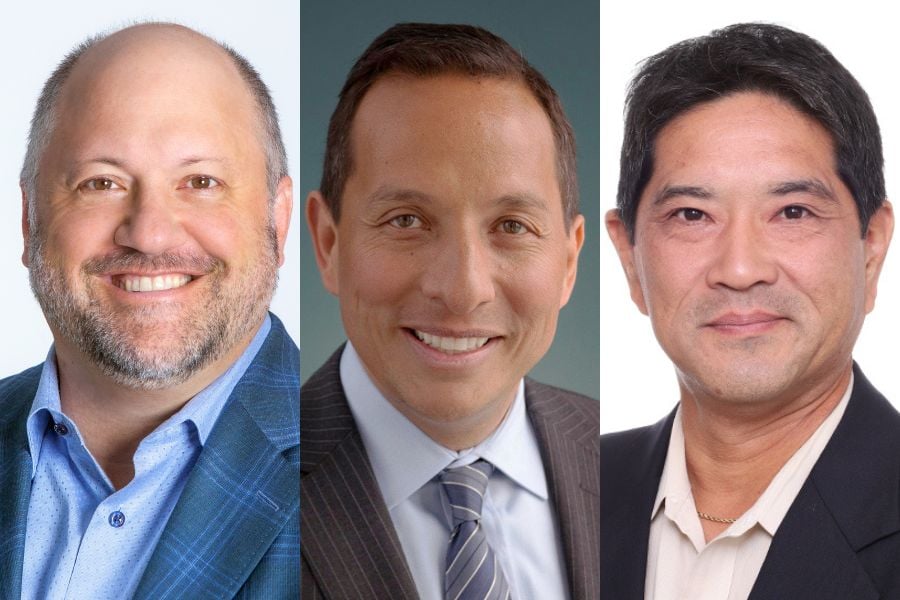

The ferociously strong dollar has sent a lot of Americans abroad this summer. In far-off destinations like Japan and Europe, they have been shopping their hearts and wallets out, enriching the locals while relishing their dream vacations.
When it comes to their investing dollars, however, Americans have been enjoying more of a “stay-cation.” The SPDR S&P 500 ETF (Ticker: SPY) is up a whopping 17 percent year-to-date, compared with the iShares Core MSCI Europe ETF (Ticker: IEUR), up 7.5 percent, and the iShares MSCI Japan ETF (Ticker: EWJ), up 8.5 percent. On the whole, the Vanguard Total International Stock Index Fund ETF (Ticker: VXUS) is up 7.5 percent this year, not even half the return of America’s S&P 500.
None of those ETFs are currency hedged to be fair. But still, it seems like a clear victory for both American stocks and Olympic athletes this summer.
Not so fast, says David Souccar, international equities portfolio manager at Vontobel. In his opinion, the reason for foreign stock underperformance this year has mostly to do with the comparison between the benchmarks.
“If you look at the international benchmark, it's mostly overweight in lower quality sectors like energy, banking, cyclicals,” said Souccar. “However, the US benchmark is mostly overweight in health care and technology. Now if you break it down when you look at the top-quality stocks, the top 200 stocks, the international benchmark on average actually outperforms the US benchmark. So it's not about international versus domestic, but it's a question of comparing apples with oranges here.”
In other words, those Magnificent 7 stocks that still make up more than 30 percent of the S&P 500 are skewing results, according to Souccar. As a result, he sees opportunities in overlooked foreign stocks in places like the UK, Canada, Japan and Sweden.
On the flip side, he is underweight Chinese stocks because of economic uncertainty and concerns about corporate governance due to government involvement in management.
Tim Harder, chief investment officer at Quotient Wealth Partners, is also wary of Chinese equities, and is reallocating client portfolios to better align with global market capitalization weights to reflect his skepticism.
“The negative factors impacting emerging markets—such as supply chain issues, trade wars, aging demographics, and Chinese geopolitical tensions—are largely reflected in current market conditions. Given the reduced weightings, the absolute risk associated with these markets is more contained,” said Harder. “Full exposure to China is now just 2.5 percent of the MSCI ACWI, which is lower than the weight of several of the top seven global stocks.”
Harder adds that there is no need for overly complex strategies here. He gains exposure to emerging markets through relatively small positions in ETFs like the iShares MSCI Emerging Markets ETF (Ticker: EEM) or iShares Core MSCI Emerging Markets ETF (Ticker: IEMG), which provide exposure to both China and the broader emerging markets.
“This approach aligns with global market cap weights and provides a straightforward method to adjust client portfolios,” said Harder.
Gene Goldman, chief investment officer at Cetera, is currently neutral on international equities, but has a cautious bias going forward.
“We would like Europe if Trump is elected. He has suggested that he would help to stop the Russia/Ukraine war, which would help the rest of Europe,” said Goldman. "Outside of Europe, we favor Japan given their recent rise in inflation and the fact that the carry trade selloff was a bit overblown. Lastly, in emerging markets, we would favor Mexico on the fact that the economy benefits from friend-shoring and relative cheap valuation.”
Goldman generally makes his international allocations through mutual funds, his three favorites being Invesco Oppenheimer International, Lazard International Equity, and Invesco Developing Markets.
Victoria Greene, founding partner and CIO of both G Squared Private Wealth and 6 Degrees Wealth, independent boutique wealth management firms based in Texas, and partner firms of Sanctuary Wealth, calls Indian stocks “exciting,” but not cheap. She says the upside potential of the ‘India-is-the-new-China’ trade is very intact, adding that the iShares MSCI India ETF (Ticker: INDA) is "a great way to get broad exposure."
Finally, Michael Nakanishi, financial advisor at Kingswood US, says the vast majority of his client holdings are in the US. Nevertheless, he has no problems diving into developed markets outside the country including the UK, Europe and Canada.
“I feel in this heightened inflationary and interest rate period, heft makes sense to weather the storm,” said Nakanishi. “I'll take these in a smattering of ETFs and mutual funds rather than individual stocks and ADRs, just to mitigate risk.”

Relationships are key to our business but advisors are often slow to engage in specific activities designed to foster them.

Whichever path you go down, act now while you're still in control.

Pro-bitcoin professionals, however, say the cryptocurrency has ushered in change.

“LPL has evolved significantly over the last decade and still wants to scale up,” says one industry executive.

Survey findings from the Nationwide Retirement Institute offers pearls of planning wisdom from 60- to 65-year-olds, as well as insights into concerns.
Streamline your outreach with Aidentified's AI-driven solutions
This season’s market volatility: Positioning for rate relief, income growth and the AI rebound
